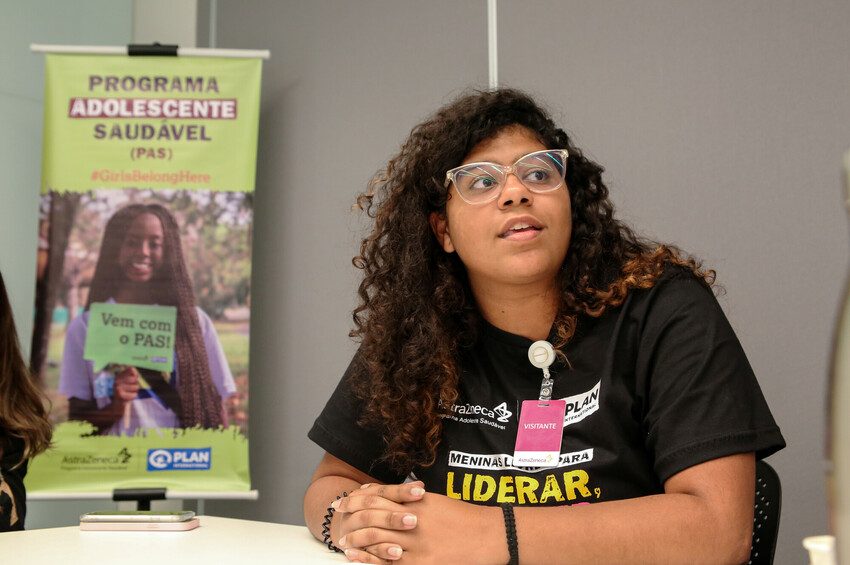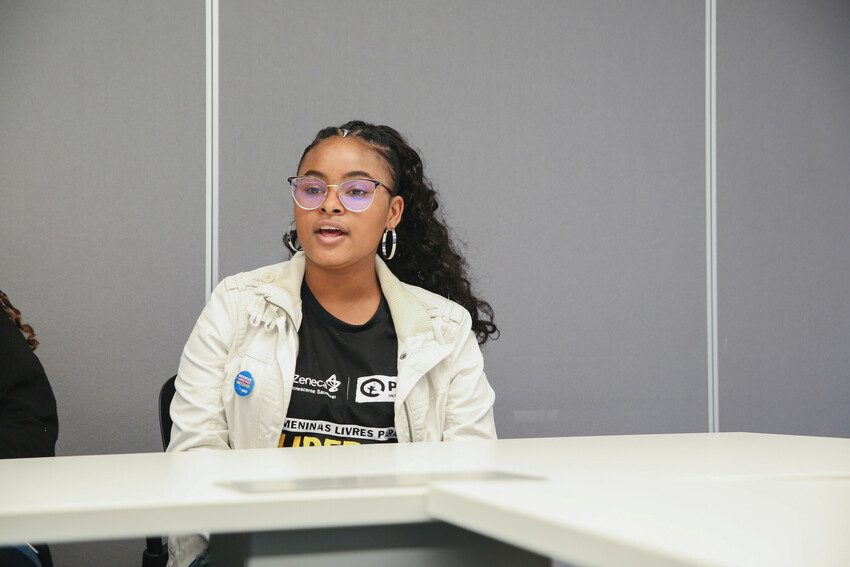Young film makers advocate healthy lifestyles for adolescents
Young people from Brazil are producing videos to encourage their peers to improve their physical and mental wellbeing.
Alanys, 17 and Júlia Vitória, 16, are learning to become actors, presenters and producers in a series of upbeat web videos encouraging young people to discuss issues like gender inequality and young women’s wellbeing and mental health.
Alanys and Júlia Vitória are peer educators who visit schools and youth groups to show the videos and lead discussions on the issues raised.
Gender stereotypes affect health

Alanys focused her film on the effect gender roles and stereotypes have on adolescent health. Interviewing race and gender specialist Jaque Conceição, she asked how the pressure and expectation that women face impacts their health and wellbeing.
“The responsibility women have at home of taking care of the children, doing the laundry, making the food; it is physically and mentally demanding. And the self-care that women should have in terms of having a healthy diet, doing exercise, minimising stress; isn’t possible because our culture only values superficial beauty,” Conceição explains.
Alanys says that making her episode of the Health on the Go (Saúde no Rolê) web series was one of the most rewarding parts of the project for her.
“During the recording, I was able to explain what the programme is about and share my knowledge with others,” she says. “The risk factors that cause non-communicable diseases affect men and women in different ways. Although women have healthier diets, they are the ones who suffer the most from food insecurity.”
Alanys lives with her parents and is a first-year high school student at a state school in São Paulo. As well as better access to health facilities, she would like her community to pay more attention to cultural activities which support young people’s mental health.
“It’s important to have culture in places like where I live. The first time I saw a hip-hop show I realised that they talk about realities, the truth about politics, society and inequalities,” explains Alanys.
Watch Alanys’ video on gender and health
Boosting mental health for adolescents

Júlia Vitória’s film takes a look at adolescent mental health and the problems some young people face such as anorexia, panic attacks, anxiety and depression.
“Until our parents’ time this was seen as a taboo, and it still is,” says Júlia Vitória. “There are many people who are ashamed to talk about it. They just assume they have to seek treatment on their own. Luckily this is all changing and there are more people talking about it.
“Before, I saw myself as lonely and used to think I had nothing to contribute to other people’s lives and that they already knew about everything. Taking part in this programme was a completely different experience.”
Meeting young people outside her social circle helped her recognise other people’s experiences, grow in confidence and express herself better. “Without these skills, I would not have been able to present the project themes and share my knowledge with other teenagers and adults,” she tells us.
Watch Júlia Vitória’s video on mental health
Improved health and sustainable change
Plan International and AstraZeneca’s Young Health Programme works with young people aged 10 to 24 in urban areas. The partnership empowers young people to live healthier lives and create change in their communities. It currently operates in Brazil, Colombia, Egypt, Kenya, Indonesia, Thailand, Vietnam and the UK.
The programme tackles factors such as tobacco use, harmful alcohol use, physical inactivity, unhealthy diet and air pollution that can cause non-communicable diseases such as preventable cancers, cardiovascular diseases and mental health conditions.
Delivered through a gendered approach, it addresses underlying social, economic, cultural and psychological factors that influence the health and wellbeing of young people.
“The programme is really cool because it works with people from disadvantaged communities. The programmes are inclusive, focusing on including minorities like women, trans and non-binary people. It’s diversity and inclusion. It’s not about talking about inclusion, it’s about including. Inclusion is not a verb, it is an action,” says Alanys.
Júlia Vitória agrees and says making her own film was incredibly rewarding. “I loved the opportunity. It was, without doubt the most interesting activity I have ever taken part in because I had contact with the cameras, script and everything else that is involved a movie production.”

